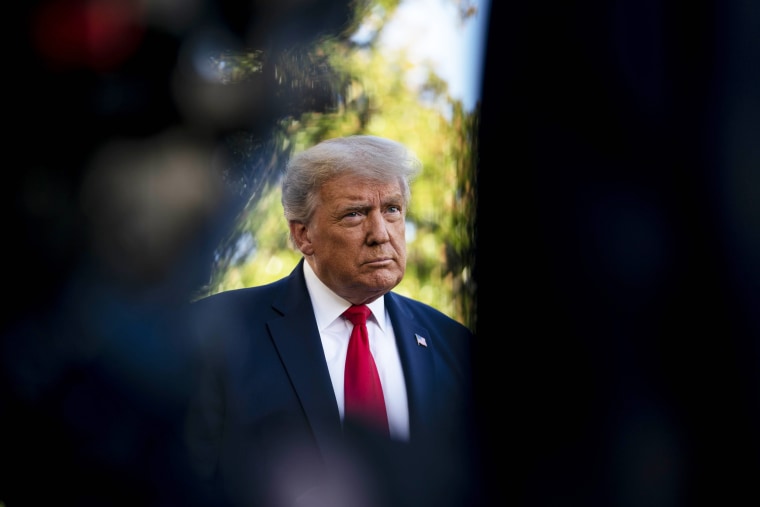Exactly nine months ago today, as his failed presidential term neared its end, Donald Trump reflected on the insurrectionist attack on the U.S. Capitol that he'd helped inspire a day earlier. "Like all Americans, I am outraged by the violence, lawlessness and mayhem," the Republican said on Jan. 7, describing the riot as a "heinous attack."
Reading from a prepared text, Trump added, "The demonstrators who infiltrated the Capitol have defiled the seat of American democracy.... To those who engage in the acts of violence and destruction: You do not represent our country, and to those who broke the law: You will pay."
Five days later, the then-president condemned the "mob [that] stormed the Capitol and trashed the halls of government." On the final full day of his term, again reading from a script, Trump added, "All Americans were horrified by the assault on our Capitol. Political violence is an attack on everything we cherish as Americans. It can never be tolerated."
At the time, the Republican apparently saw some political value in aligning himself with the American mainstream. Much of the nation, like much of the world, recoiled in response to insurrectionist violence, and Trump didn't see an upside to pushing back.
He's since abandoned the pretense. The former president issued this written statement yesterday:
"The Unselect Committee of partisan Democrats, and two very weak and pathetic RINOs, should come to the conclusion after spending many millions of dollars, that the real insurrection happened on November 3rd, the Presidential Election, not on January 6th — which was a day of protesting the Fake Election results."
Trump pushed similar rhetoric on a conservative podcast a day earlier, insisting, "The insurrection took place on November 3rd. That was the insurrection: when they rigged the election. The big insurrection, the real insurrection."
The fact that Trump is lying is obvious. The election was not rigged; the Republican keeps pretending otherwise because his fragile ego can't tolerate being seen as a loser who was twice rejected by his own country's electorate.
What's less obvious is how dangerous lies like these are.
According to a former American president — by all measures, the head of one of the nation's two major political parties — it's time to rebrand the word "insurrection." It should no longer refer to violent anti-government uprisings; it should instead refer to election results Trump disapproves of.
There's a word for those who believe elections are crimes. They're called authoritarians.
Making matters slightly more serious, the former president's followers seem unfazed by Trump's increasingly radical antics. The Pew Research Center released the results of a new national poll yesterday, noting, "The share of Republicans who say Trump should continue to be a major national figure has grown 10 percentage points — from 57% to 67% — since a January survey that was conducted in the waning days of his administration and in the immediate wake of the Jan. 6 riot at the U.S. Capitol."
The former president has spent the year on a dangerous and undemocratic crusade. During that time, the public has gained a clearer understanding of many of the scandals and corrupt abuses that unfolded during his tenure.
And it's against this backdrop that a growing majority of Republican voters are saying they want Trump to be a major political figure for many years to come.
Democratic Sen. Brian Schatz of Hawaii told The New York Times this week, "American politics has gone crazy because one party has gone crazy." It's a quote that resonates for a reason.

